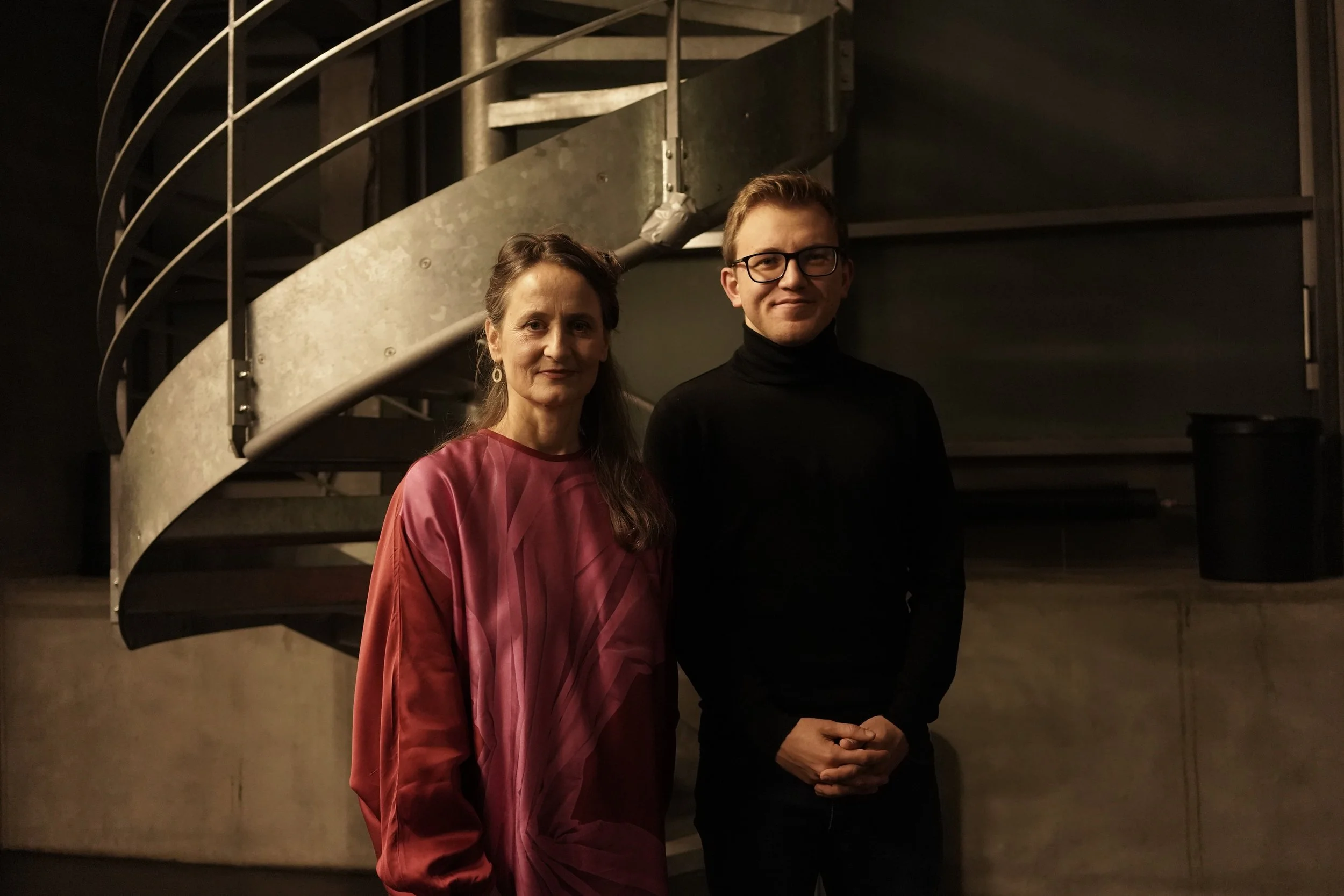Ricercare on
The Art of Fugue
Available on RaiPlay
Each counterpoint is a starting point for conversations between Filippo and eminent personalities of the contemporary world, to discover the many sides of Bach’s poetic and its influences on today’s culture.
Counterpoint I - Introduction
The unknown, remembered gate
From Milan’s Steinway Hall, Filippo Gorini introduces viewers to The Art of Fugue, underlining its history, structure and meaning.
Counterpoint II - Alexander Polzin
The distant rote in the granite teeth
In a conversation in his studio in Berlin, the German sculptor, painter and scenographer Alexander Polzin seeks the possible relationship between Bach and the contemporary visual arts. In Polzin’s portrait, Bach’s cosmos emerges as a magical world, full of shapes and colours, where geometrical purity meets the breath of life.
Counterpoint III - Alfred Brendel
The world of perpetual solitude
In a conversation in Casa degli Atellani, Milan, Austrian pianist Alfred Brendel gives his advice on interpreting Bach at the piano and on the beauty of fugues in music. A powerful musical vision, together with the memories of a long and important career, bring us back to listening to the great musicians of the XX Century.
Counterpoint IV - Peter Sellars
The bird in the rose garden
In a conversation in his house in Los Angeles, American stage director Peter Sellars expresses his touching, affectionate vision of Bach’s music, very far from the cold image often associated with it. In his work on the Bach Passions, Sellars underlines the empathy and warmth present in these masterpieces.
Counterpoint V - Frank Gehry
Old stones undeciphered
In a conversation in his studio in Los Angeles, Canadian architect Frank Gehry speaks on the similarities between the mind of an architect and Bach’s. In his concert halls, the love for music, musicians and audiences is combined with free exploration that, like Bach’s own, uses and challenges the laws of symmetry at the same time.
Counterpoint VI - Steven Isserlis
Fare forward, voyagers
In a conversation at the Stauffer Academy in Cremona, British cellist Steven Isserlis explains the rhythmical element and dance forms, present even in Bach’s sacred music. In his interpretation of the cello Suites, rigour lives harmoniously with the ability to dance and express joy.
Counterpoint VII - Betül Tanbay
The heart reflecting in a watery mirror
In a conversation at the Bosphorus University, Turkish mathematician Betül Tanbay revels on the poetry that is innate in mathematics, and how Bach achieved infinity through a limited, rational number of notes. In her vision, nature is transcendent, and mathematics and music are languages through humanity can mysteriously grasp its infinity.
Counterpoint VIII - Aleksandr Sokurov
The murmuring shell of time
In a conversation in the Museo del Risorgimento in Turin, Russian film director Aleksandr Sokurov explores the sense of time in Bach’s music. Since his childhood in Soviet Russia, Sokurov heard in this music the voice of the angels, so moving that it would be easy misuse it. In his cinema, this music becomes the firewood to unleash new, independent art.
Counterpoint IX - Leila Getz
Pentecostal fire in the dark
In a conversation in London, South-African born Leila Getz, artistic director of the Vancouver Recital Society, underlines the value of artistic and musical heritage in everyone’s education. Bach’s music makes us better people, and should be a pillar for our future that everyone studies and enjoys since a young age.
Counterpoint X - Alice Mado Proverbio
The future is a faded song
In a conversation in her laboratory at the Milan Bicocca University, Italian neuroscientist Alice Mado Proverbio explains how Bach’s music is understood and processed by the human brain. Being also an accomplished organ player, she unravels the neurology behind music listening, and invites everyone to listen to Bach.
Counterpoint XI - Dominique Eddé
Past and future gathered
In a conversation in her solitary retreat on Sedef Island, Lebanese writer Dominique Eddé explores the sense of time and memory in The Art of Fugue. From similarities with Ibn Arabi’s philosophy to those with Ingmar Bergman’s cinema, for her this work is a journey on the verge between life and death, and Bach is the composer who lets even non-believers like her hear the sound of God.
Counterpoint XII - Marcus Du Sautoy
The fire and the rose are one
In a conversation at his house in London, British mathematician Marcus du Sautoy recounts the history of symmetry in nature, art and science. In nature, symmetry is the language of meaning, and Bach taps into this language as a fundamental structural and expressive means in his music.
Counterpoint XIII - Sasha Waltz
Round and round the fire
In a conversation at the Radialsystem in Berlin, German dance choreographer Sasha Waltz reflects on the importance of dance, the human body and rituals in Bach’s music. For her, the boundaries between body and mind are impalpably thin, and rites are the way to balance them. Theatres, like Bach’s music, are new temples for today’s humanity.
Fuga XIV - George Benjamin
At the still point of the turning world
In a conversation in Cologne, British composer George Benjamin considers Bach’s last, unfinished fugue, and talks passionately about the immortal values shared by composers of all ages, and the stupour in front of Bach’s miraculous technical and expressive abilities, inviting listeners to conclude this journey with The Art of Fugue.
















